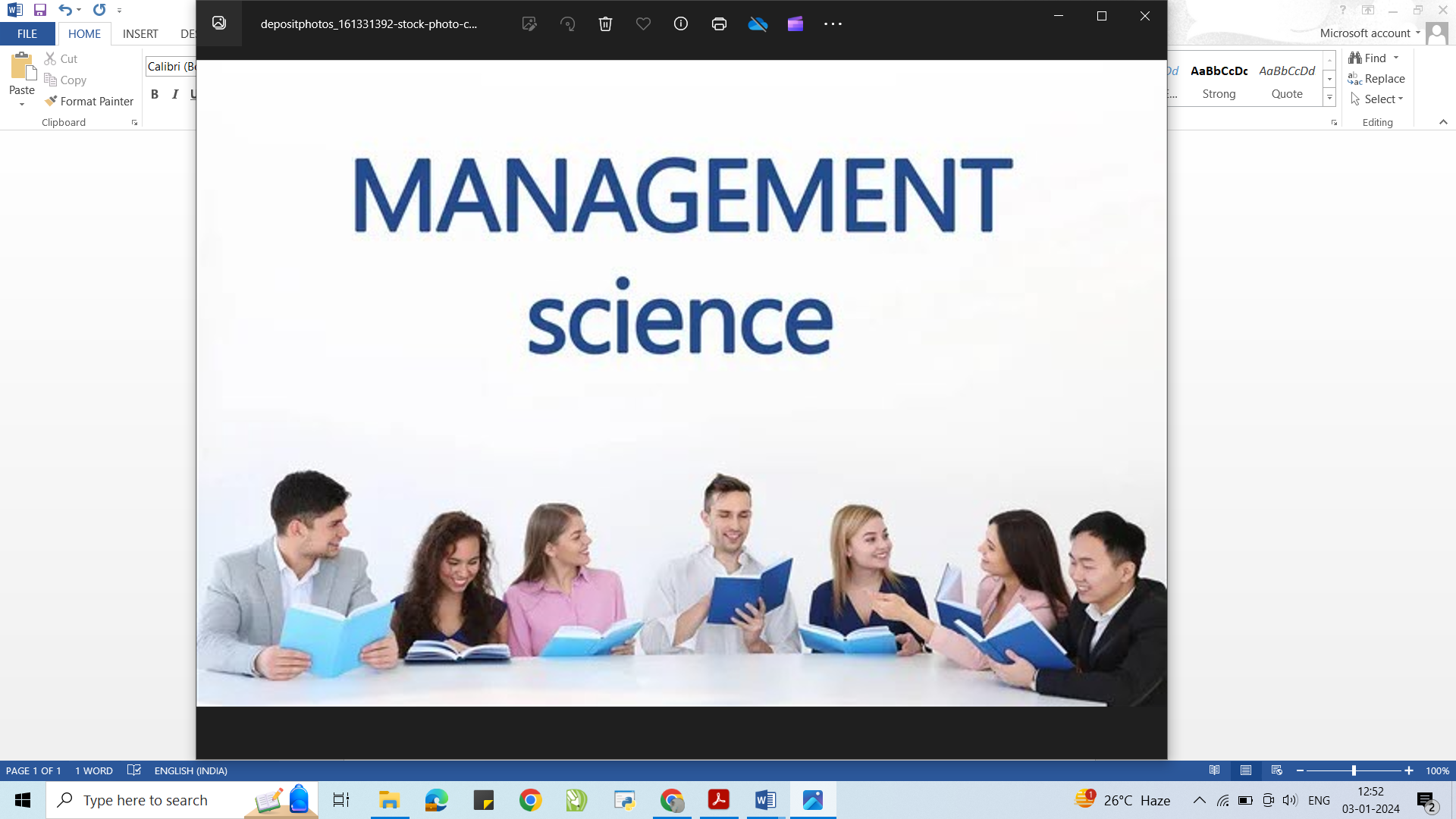COURSE OBJECTIVES:
- Help students develop essential skills to influence and motivate others
- Inculcate emotional and social intelligence and integrative thinking for effective leadership
- Create and maintain an effective and motivated team to work for society
- Nurture a creative and entrepreneurial mindset
- Make students understand personal values and apply ethical principles in professional and social contexts.

- Teacher: SATYA SWAROOP ROY MEDAPATI
COURSE OBJECTIVES:
1. To give an overview of different Optimization Techniques useful for problem solving and decision making.
2. To introduce OR techniques such as Linear Programming Problem.
3. To analyze the managerial applications of Assignment problems and Transportation problems.
4. To study capacity planning and sequencing of operations.
COURSE OUTCOMES:
CO1. Helps in formulating real life situations in organizations in Quantitative form.
CO2. Helps in formulating strategies for optimal use of various resources within the organizations.
CO3. Enables the students to understand the concept of purchase management and stores management.
CO4. Students get understanding on the concepts of network fundamentals and resource analysis and allocations.
CO5. Enables the students to understand the managerial applications of transportation problems, assignment and queuing theory

- Teacher: PHEBI PRIYADARSINI P
COURSE OBJECTIVES
To develop an understanding of:
The basic framework of Research Process
Various Research designs and Techniques
Various Sources of Information and their identification for literature review and Data collection
Some basic Concepts of Research and its Methodologies
COURSE OUTCOMES
After the completion of the Course, Students would acquire the needed capacity to:
1. Apply a range of Quantitative and/or Qualitative Research Techniques to business and Management problems / issues
2. Necessary critical thinking skills in order to evaluate different Research Approaches utilized in the service industries
3. Identify the overall Process of designing a Research study from its inception to its Report.
4. Define the Meaning of a variable, and to be able to identify independent, dependent, and mediating variables.
5. Acquire familiarization with good practices in conducting a Qualitative Interview and
observation

- Teacher: Dr. KIRTI SUNIL BIDNUR
The General English course addresses the language needs of the students at the undergraduate level. The focus will be upon five categories: Poetry, Prose, Pronunciation, Vocabulary, and Grammar. In addition to these, the last two segments of each unit focuses upon reading, speaking and writing skills of the students. Overall the course will focus upon skills acquisition with an added emphasis on the critical thinking faculties of the students concerning academic, political, literary and ethical concepts. The syllabus has been designed to improve the communication skills of undergraduate students as a part of a comprehensive and holistic development which includes ethical, societal and cultural concerns.

- Teacher: Dr SAIKIRAN D
Business Law and Ethics provides an overview of the legal system in the business setting. The subject provides a comprehensive understanding on the legal laws related to Contracts, Sale of Goods & Management of Companies by learning the acts related to them. It also acquaints students with the concept of Business ethics and its importance.

- Teacher: PAVITRAMBIKA MANGARI
|
1. To identify opportunities for starting business |
2. To be able to write a business plan |
3. To take decision regarding form of business ownership |
4. To conduct feasibility study |

- Teacher: ANUREETHA DAS